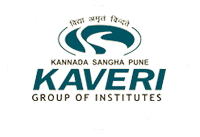Topic: Accepting and Celebrating Failures
Date: 13 September 2024
Duration: 1 hour 30 minutes
Venue: AV Room
Attendance: 21 students
Objective:
A session on the topic of Accepting and Celebrating Failures was held on 13 September 2024 with the objective to help students understand the value of failure as a part of the learning process and to develop a positive mindset towards setbacks. By accepting and celebrating failures, students are encouraged to view them as opportunities for growth and self-improvement.
Session Overview:
The session began with an activity of Simple Knot in which students first stood in a circle simply holding hands, and then they had to change their position slightly by crossing their arms and then holding hands with each other. Their only instruction was that they had to go back to the original position without breaking their hand holds. Inevitably, the students failed at completing the task and collectively experienced failure.
After the activity, the students were given sheets of paper and asked to write down how failure makes them feel, since it was so fresh in their minds. This was to help them reflect on the experience of failure and the emotions associated with it.
Following that, the facilitators talked about the feelings underlying the iceberg of failure, as well as the common misconceptions and societal/cultural attitudes which belie it. There was discussion on the role of failure in personal and academic growth, and how a change of perspective can be transformational for how one views failure. The students were urged to not resort to judgment and self-criticism after experiencing failure, but rather embrace it and use it as a learning opportunity to do better next time. This was emphasized by sharing anecdotes about successful people who have repeatedly experienced failure before succeeding in life, such as Steve Jobs, J.K. Rowling, and Albert Einstein.
Students were very interactive, eager to share their opinions on the topic, and also shared personal stories of failure with everyone and what they learned from it.
A second activity of Pass Through the Paper was conducted an hour into the session. In this activity, the students were divided into four groups, given a small piece of paper per group and asked to devise a way to pass through the paper while keeping it intact. The students tried their best to achieve the objective, and one group came very close to the solution, but ultimately all groups failed. The facilitator then demonstrated how to do it and how simple the solution was.
Towards the end of the session, the facilitators discussed the five A’s of dealing with failure and techniques for reframing failure as a positive experience. This included practical tips for building resilience and a growth mindset.
In the last ten minutes, the floor was opened for students to ask questions and share their reflections on the session.
Students expressed appreciation for the candid discussion about failure and the practical exercises that helped them reframe their perspectives. Many reported feeling more empowered to approach their own setbacks with a positive attitude. Suggestions for improvement included more time for interactive activities and inclusion of more boys in the Aastha sessions, since most of the attendees are always girls, and a male perspective is missing.
Conclusion:
The session successfully achieved its goal of helping students accept and celebrate failures as a part of their personal and academic growth. By fostering a positive attitude towards setbacks and providing practical strategies for resilience, students are better equipped to handle challenges and continue striving towards their goals.

